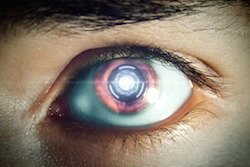Telefónica has implemented biometric authentication and digital signature technology into its security products, which it will show off at next week’s Mobile World Congress.
The operator recently bought Spanish security firm SmartAccess and will now use its SmartID and SealSign solutions. The former combines a range of different user authentication methods such as smart cards, RFID/NFC, face recognition and biometric fingerprint scanners.
It is compatible with the new Spanish electronic ID system DNIe 3.0, which replaces passwords with two-step authorisation using a combination of the above credentials. The operator said the solution would reduce ID card fraud and identity theft and is being targeted at enterprises and security companies.
SmartID can also be used alongside Latch, a “digital padlock” service from Telefónica’s digital subsidiary ElevenPaths that allows users to effectively switch off online accounts when they are not in use.
SealSign is a document-signing platform which can work alongside digital certificates, biometric systems and one-time password systems. It combines biometric recognition of a user’s voice or signature to increase the security of signing for secure documents.
Chema Alonso, CEO of ElevenPaths, said: “Currently, many of the security breaches we see involve an attack on people’s identities, so dealing with this is one of the most complex, but important, issues faced today. The reduction of fraud and problems related to identity theft must be a priority for individuals and companies in order to retain confidence in digital services and applications. Through these two new ElevenPaths solutions we are in a strong position to help provide this much needed protection as well as opening up new ways of working and accessing digital services.”
Read more:
Gemalto launches full investigation into Snowden hacking claims



